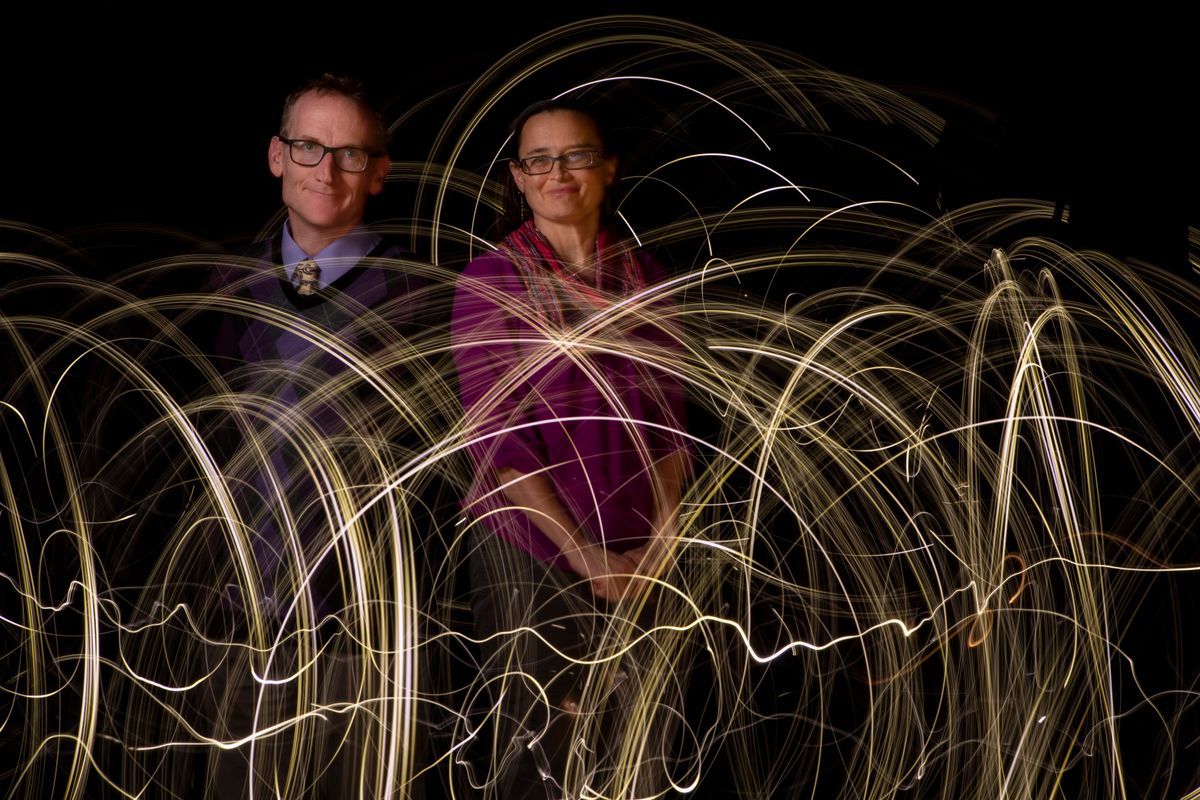ASTRONOMY
WVU astrophysicists win the Shaw Prize, the 'Nobel of the East'

West Virginia University (WVU) astrophysicists Duncan Lorimer and Maura McLaughlin have been chosen to receive the prestigious Shaw Prize in Hong Kong. This award is often referred to as the "Nobel Prize of the East" and is given to individuals who have made significant contributions to their respective fields, contributing to the progress of society, the enhancement of the quality of life, and the enrichment of humanity's spiritual civilization.
Lorimer and McLaughlin, both professors of physics and astronomy at WVU's Eberly College of Arts and Sciences, are recognized for their groundbreaking discovery of fast radio bursts (FRBs). These intense pulses of energy, originating billions of light years away, last only milliseconds and until Lorimer and McLaughlin's discovery, remained unexplained. Thousands of these enigmatic cosmic flashes have been observed since their initial discovery in 2007.
The Shaw Prize acknowledges not only the significance of Lorimer and McLaughlin's discovery but also their extensive contributions to the field of astronomy and their dedication to raising the profile of WVU.
Their partnership began when Lorimer, working as a research scientist at the Arecibo Observatory in Puerto Rico, playfully complained to McLaughlin, a visiting graduate student, about her use of the supercomputer without permission. This lighthearted exchange set the stage for their fruitful partnership.
Lorimer and McLaughlin made significant contributions at the Jodrell Bank Observatory in the UK before moving to the US. They chose to join WVU in 2006, mainly because the university was close to the Green Bank Telescope, the largest radio telescope in the continental United States.
At WVU, they laid a strong foundation for astronomy education and research, creating a graduate program in astronomy and expanding the number of faculty members in the department. They co-founded the Pulsar Science Collaboratory, which involved thousands of high school students in pulsar searches. Their involvement in the North American Nanohertz Observatory for Gravitational Waves and the establishment of the Center for Gravitational Waves and Cosmology further solidified their impact on the field.
Their proudest accomplishment at WVU is their contribution to training the next generation of astrophysicists. Lorimer has proudly graduated as his 11th WVU Ph.D. student, and McLaughlin is inspired every day by the exceptional students and postdoctoral researchers she works with.
Lorimer and McLaughlin's remarkable achievements were recognized with the Shaw Prize, awarded in the categories of astronomy, life sciences and medicine, and mathematical sciences. They are two of only seven recipients of the 2023 Shaw Prize, alongside Australian astrophysicist Matthew Bailes, who worked alongside the couple.
The nomination process for the Shaw Prize was a surprise to Lorimer and McLaughlin. They were asked to submit their CV without any mention of the award. It was on a Sunday night at home when they received the news of their incredible accomplishment. Duncan recalled the excitement, with him running up the stairs to share the news with Maura, leading to an unforgettable moment for both of them.
The Shaw Prize was established in 2002 in Hong Kong by philanthropist Run Run Shaw to recognize individuals who advance science. Lorimer and McLaughlin's fascination with scientific knowledge started in their teenage years. Lorimer recalls observing a lunar eclipse through a telescope entrusted to him by his teacher, while McLaughlin discovered Steven Hawking's "A Brief History of Time," sparking her fascination with the concepts of black holes, compact objects, and spacetime.
Despite their remarkable achievements, Lorimer and McLaughlin see the Shaw Prize as just another milestone in their career. Their work is far from over, with countless pulsars, fast radio bursts, gravitational waves, and yet-to-be-discovered phenomena waiting to be explored. Lorimer is currently involved in projects to discover more sources in the transient sky and to improve data processing efficiency using artificial intelligence. McLaughlin is determined to unravel the mysteries behind fast radio bursts, including their unusual brightness and the galaxies they originate from.
Lorimer and McLaughlin's exceptional work has not only elevated the field of astronomy but also highlighted WVU's commitment to cutting-edge research. As they continue their scientific journey, their impact on astronomy and astrophysics is set to grow even further.

